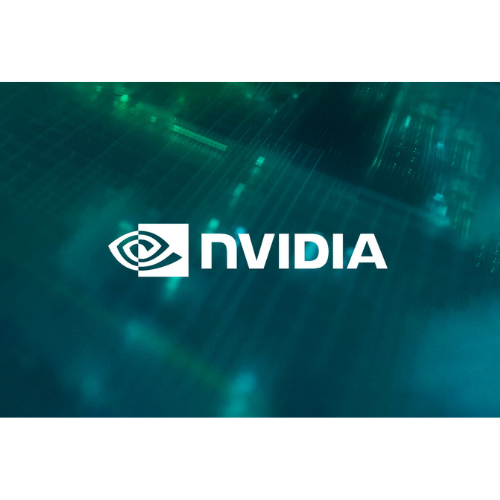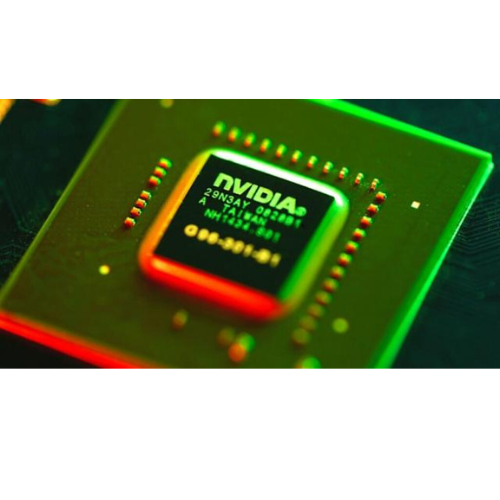Nvidia’s Quantum Leap: Why Its $600M Investment in Quantinuum Signals a New Era in Computing
In a bold move that’s sending ripples across the tech and investment landscape, Nvidia has officially entered the quantum computing race. The company’s recent $600 million investment in Quantinuum—a leading quantum computing firm majority-owned by Honeywell—marks a strategic pivot that could redefine the future of artificial intelligence, cybersecurity, and high-performance computing.
Nvidia, long celebrated for its dominance in GPU technology and AI infrastructure, has now turned its attention to quantum computing—a field once considered decades away from practical application. The investment in Quantinuum, which now boasts a $10 billion valuation, is not just a financial endorsement. It’s a signal that quantum computing is nearing commercial viability and that Nvidia intends to be at the forefront of this transformation.
Quantinuum, formed in 2021 through the merger of Honeywell Quantum Solutions and Cambridge Quantum, is one of the few companies offering a full-stack quantum platform. It develops both hardware and software, giving it a vertically integrated model that sets it apart from competitors like IonQ and D-Wave.
AI Meets Quantum
Nvidia’s CEO Jensen Huang has publicly revised his stance on quantum computing. Once skeptical about its near-term potential, Huang now believes the technology has reached an “inflection point”. This shift aligns with Nvidia’s broader strategy to integrate quantum capabilities into its AI-driven platforms.
The synergy between quantum computing and AI is profound. Quantum systems can process complex datasets in parallel, enabling breakthroughs in machine learning, optimization, and simulation. Nvidia’s Grace Blackwell 200 chip, designed to accelerate quantum algorithms, is already being positioned as a bridge between classical and quantum architectures.
Quantinuum is also a founding collaborator at Nvidia’s Accelerated Quantum Research Center in Boston, where the two companies are working on applications in finance, chemistry, and cybersecurity. This partnership could lead to hybrid systems that combine the brute-force power of GPUs with the probabilistic finesse of quantum processors.
Market Implications and Investor Sentiment

The investment has sparked renewed interest in quantum stocks. Companies like IonQ, Rigetti, and D-Wave have seen increased trading volume, with some experiencing double-digit gains following the announcement. Honeywell, despite being a more diversified industrial player, now finds itself in the spotlight as a potential quantum powerhouse.
Quantinuum’s valuation doubling from $5 billion to $10 billion in less than a year reflects growing investor confidence in the sector. Major players like JPMorgan, Mitsui, Amgen, and Quanta Computer also participated in the funding round, underscoring the commercial promise of quantum technologies.
For Nvidia, the move is a hedge against future disruption. By investing in quantum now, the company ensures it won’t be blindsided by a paradigm shift that could render classical computing obsolete in certain domains.
Global Expansion and Strategic Partnerships
Quantinuum’s global footprint is expanding rapidly. With operations in the US, UK, Germany, and Japan, and recent partnerships in Qatar and Singapore, the company is positioning itself as a global leader in quantum infrastructure. Its joint venture in Qatar, backed by a $1 billion national investment, aims to deliver advanced quantum solutions to the Middle East.
These partnerships are not just about market access—they’re about building ecosystems. By collaborating with institutions like RIKEN, SoftBank, and Infineon, Quantinuum is accelerating research, securing supply chains, and scaling manufacturing capabilities.
The road ahead for Nvidia and Quantinuum is filled with both promise and complexity. Here are some key projections:
- Commercial Applications by 2027: Honeywell has earmarked Quantinuum for a potential IPO by 2027. By then, we could see quantum systems being used in drug discovery, financial modeling, and climate simulations.
- Hybrid Computing Architectures: Nvidia is likely to develop platforms that seamlessly integrate quantum and classical computing. This could revolutionize fields like cryptography, logistics, and AI training.
- Quantum-as-a-Service (QaaS): As cloud providers like Microsoft and Amazon begin offering quantum access, Nvidia may launch its own QaaS platform, leveraging its existing data center infrastructure.
- Talent and IP Race: Expect a surge in hiring and patent filings as Nvidia and Quantinuum compete with rivals like IBM, Google, and Intel in the quantum space.
- Regulatory and Ethical Challenges: Quantum computing raises new questions about encryption, data privacy, and algorithmic bias. Nvidia will need to navigate these issues carefully, especially as quantum systems begin to outperform classical ones in sensitive applications.
A Quantum Future, Powered by Nvidia

Nvidia’s $600 million investment in Quantinuum is more than a financial maneuver—it’s a strategic declaration. The company that revolutionized gaming and AI is now betting on quantum computing as the next frontier. With its unmatched ability to anticipate technological inflection points, Nvidia is once again positioning itself ahead of the curve.
As quantum computing moves from theory to practice, the companies that master its integration with classical systems will define the next era of innovation. Nvidia and Quantinuum are now leading that charge—and the implications could be as transformative as the birth of the internet or the rise of artificial intelligence.
